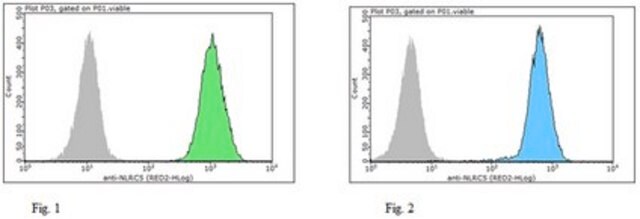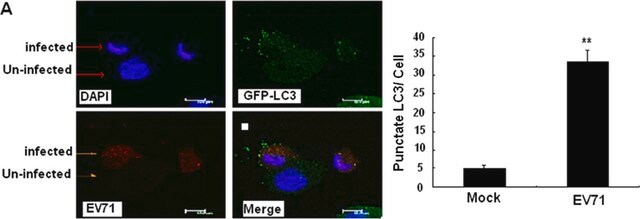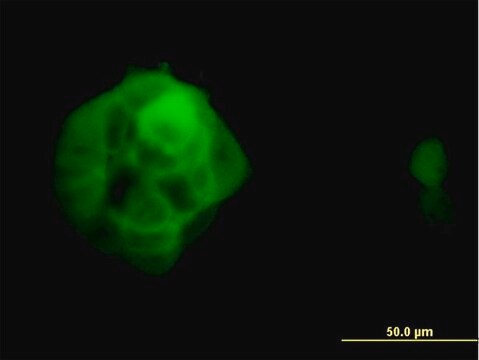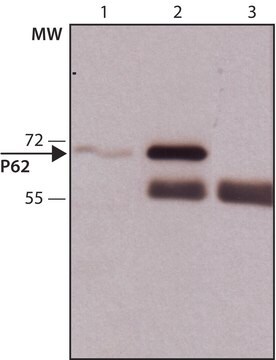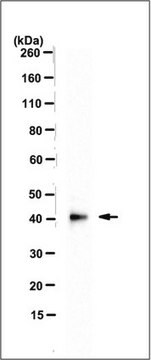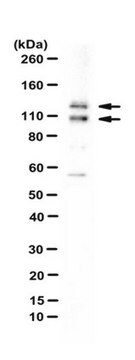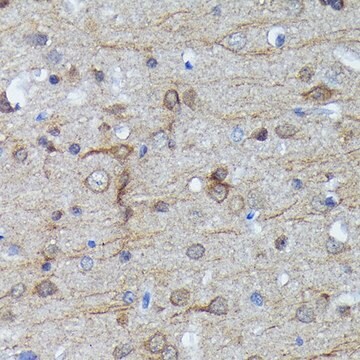MABN763
Przeciwciało przeciw ubikwilinie 2, klon 6H9
clone 6H9, from mouse
Synonim(y):
Ubiquilin-2, Chap1, DSK2 homolog, Protein linking IAP with cytoskeleton 2, PLIC-2, hPLIC-2, Ubiquitin-like product Chap1/Dsk2
About This Item
Polecane produkty
pochodzenie biologiczne
mouse
Poziom jakości
forma przeciwciała
purified immunoglobulin
rodzaj przeciwciała
primary antibodies
klon
6H9, monoclonal
reaktywność gatunkowa
human, mouse
metody
immunocytochemistry: suitable
western blot: suitable
izotyp
IgG1κ
numer dostępu NCBI
numer dostępu UniProt
Warunki transportu
wet ice
docelowa modyfikacja potranslacyjna
unmodified
informacje o genach
human ... UBQLN2(29978)
Opis ogólny
Immunogen
Zastosowanie
Analiza immunocytochemiczna: Reprezentatywna partia wykryła ubikwilinę 2 w komórkach HeLa.
Neuroscience
Developmental Signaling
Jakość
Western Blotting Analysis: 1.0 µg/mL of this antibody detected Ubiquilin 2 in 10 µg of U-251 cell lysate.
Opis wartości docelowych
Postać fizyczna
Przechowywanie i stabilność
Inne uwagi
Oświadczenie o zrzeczeniu się odpowiedzialności
Nie możesz znaleźć właściwego produktu?
Wypróbuj nasz Narzędzie selektora produktów.
Kod klasy składowania
10 - Combustible liquids
Klasa zagrożenia wodnego (WGK)
WGK 2
Certyfikaty analizy (CoA)
Poszukaj Certyfikaty analizy (CoA), wpisując numer partii/serii produktów. Numery serii i partii można znaleźć na etykiecie produktu po słowach „seria” lub „partia”.
Masz już ten produkt?
Dokumenty związane z niedawno zakupionymi produktami zostały zamieszczone w Bibliotece dokumentów.
Nasz zespół naukowców ma doświadczenie we wszystkich obszarach badań, w tym w naukach przyrodniczych, materiałoznawstwie, syntezie chemicznej, chromatografii, analityce i wielu innych dziedzinach.
Skontaktuj się z zespołem ds. pomocy technicznej